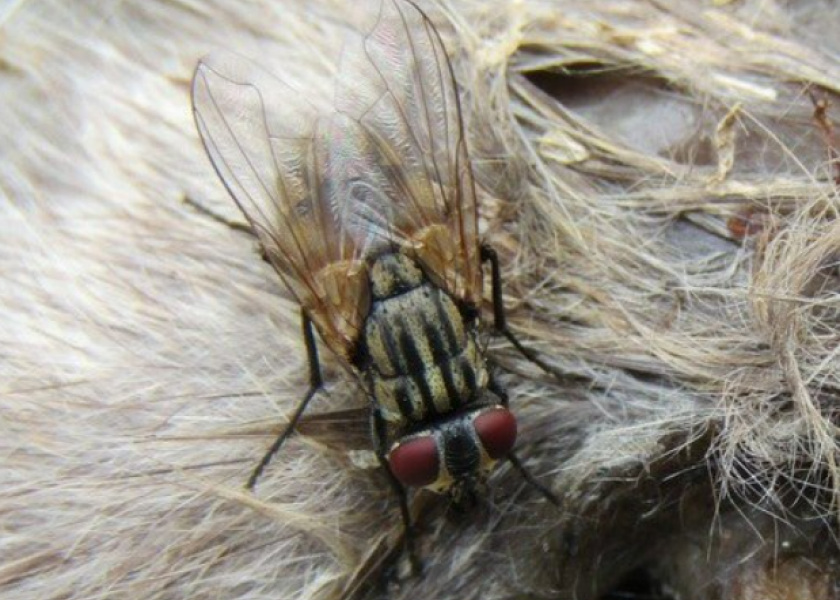Shoo Fly: Can Coconuts Keep Flies Away?

Stable flies and other blood-feeding pests take a $2.2 billion bite out of agriculture, USDA said in a release. Three scientists from the USDA Agricultural Research Service (ARS) teamed up to fight back against these pests.
In a collaborative effort, they used their specialties in entomology, organic chemistry and processing technology to turn the coconut into the longest-lasting natural repellent product studied to date, the article said.
Coconut fatty acids have exceptionally strong repellent qualities against various blood-sucking pests, discovered Steven Cermak, research leader at the ARS National Center for Agricultural Utilization Research (NCAUR) in Peoria, Ill.; James Kenar, chemist at NCAUR; and Jerry Zhu, lead entomologist and chemical ecologist at the ARS Agroecosystem Management Research Unit in Lincoln, Neb.
Besides direct physical injury, stable flies can transmit viruses, bacteria and parasites to livestock.
“Animal stress and disease affect milk production in dairy cows,” Cermak said in the release. “In the leather industry, bite marks damage hides and influence leather quality. Finally, costs associated with animal welfare – to treat disease, and deal with animal loss – can be enormous. So, it is important to keep the animals free of these types of pests.”
Medium chain fatty acids have strong repellency and long-lasting effectiveness against multiple insects, such as mosquitoes, ticks, biting flies and bed bugs that can transmit diseases to both humans and animals. Although some other plant oils also possess the compounds, nearly two-thirds of coconut oil is made up of the desired medium chain fatty acids, the researchers explained.
“These fatty acids repelled biting flies and bed bugs for two weeks after application, and ticks for one week,” Zhu said. “Our initial testing of an aqueous starch-coconut fatty acid formulation protected pastured cattle from biting flies up to 96 hours in the hot summer. To our knowledge, this is the longest protection provided by a natural repellent product studied to date.”
Repellency is a step forward. But researchers point out that it won’t do any good if it cannot be applied in a safe manner for the animals and the environment.
The team used a starch and water mix to carry the coconut fatty acids. Because coconut fatty acids are not water soluble, delivering them in a water-based system proved challenging.
The team decided to use a technology previously developed at NCAUR. The process incorporated jet cookers to disperse starch and the coconut fatty acids into water. The slightly viscous mixture allows for dispersal of coconut fatty acids in small droplets that do not rapidly stick together, the release said.
“There are still tweaks and improvements we can make, but, based on previous research and experience, we expect the material can be dried to a powder so it can be shipped without the added water weight, stored, and then rehydrated as needed for use,” Kenar said.
In addition, coconut oil and its derivatives are renewable resources and are recognized as safe.
“Although the majority of our research using coconut fatty acids has been focused on livestock applications, we also see potential commercial applications that include skin lotions, textiles, and agricultural applications for crop protection, and even for garden snails in our backyards,” Zhu said.
Read more:
Wind, PRRS and Pig Farm Biosecurity: Learn from Our Outbreak
Parity and Body Condition Score Drive Summer Fertility in Sows







